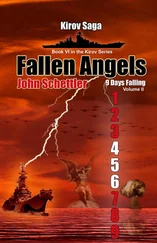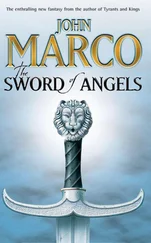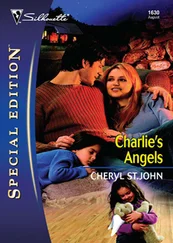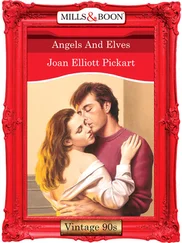I rode the bus as far as King’s Cross, then changed to the tube for the rest of the journey; watching the snow melting off my boots as we banged and rattled southward, from tunnels into canyons open to the slaty sky.
Someone was waiting for me at the other end.
Coming up out of the station, I found him right in my path – huddling on the stairs like a survivor of Stalingrad. A beggar wrapped up in a hospital blanket, his stubbled face pinched tight with the cold. His grey eyes hungry.
And survivor he was, I thought numbly: straggling in retreat from an undeclared war. A man defeated. But I was the one who spread my mittened hands, as if in surrender.
‘Sorry, mate … No change …’
He’d asked as I said it; the appeal stayed frozen to his face. And all I could do was pass him by, my helpless hands still empty; giving him a small, regretful smile.
Big help, of course. But with shock still thumping dully in my chest, it was as much as I could manage. Hardly his fault, poor bloke – but some things still brought the worst of it back. And try as I might, I couldn’t keep my nerves from reacting.
After a moment I raised my face again – and the hospital was there before me, looming up like a tenement block; sombre as stone. But its windows leaked light and warmth from the world within: a place protected from this bitter day. A refuge in refugee city.
I waited for a gap and crossed the road: hunching my shoulders against the cold.
Finished scribbling the last detail, I looked up from my notebook. ‘That it?’
Sue nodded, and I glanced quickly back over what I’d written. Six patients handed over, in varying degrees of recovery. I glanced out through the office door, and the pages of notes were transformed into six exhausted bodies, hemmed in with machinery and monitors. The nearest ventilator hissed steadily. Intensive Care was nearly a full house.
‘Oh … we had some lost property handed in …’ Sue added, as I clicked my pen. ‘I locked it in the drugs cupboard …’
‘What, from relatives?’
She shrugged. ‘Cleaner found it. Some sort of toy or trinket. Doubt if it’s valuable …’
The rest of the shift were already stirring. The phone at the station rang again, and Jez led the way out to answer it. Sally was helping Jean turn Mr Hall. The next eight hours began here and now.
I stood, and tucked away my notebook. Beyond the blinds and windows, the grey sky looked like porridge; it made our lights seem all the brighter. I could almost feel the chilly wind against the glass; sense the mess of slushy streets below us. But winter couldn’t reach us here.
I’d come to this hospital with my ENB 100 under my belt, and my mind on a fresh start; but it had been a bit like a homecoming as well. London was where I’d trained: where I’d grown from girl to woman. I always knew I’d return one day. The ITU qualification had been my ticket back.
Intensive Care. A whole new ballgame after A&E, but no less demanding. I’d been one of the Sisters here for nine months now – and all of them on days.
I’ll not be working nights again.
Not ever.
‘Do you want me to change Joe’s infusion?’ Sue asked, already glancing in that direction; still smoothing her polythene pinny.
I glanced down at my watch; the time had flown. She should have been gone an hour ago.
‘No, you get off home now. And thanks, Sue. I mean that.’
She gave a tired little smile – which flickered to a frown. ‘Oh, yes … That lost property. I was meaning to give it you …’
‘Look, don’t worry …’ I began, but she was already going over to the wall cupboard. The red light above the door came silently on as she unlocked it, like a warning sign. And that was how it struck me, for no good reason – even though I’d seen the like on every single working day. Red for danger: a glowing, bloodshot eye.
Then the softer yellow light of the interior bathed our faces.
‘Here. I didn’t seal it.’ She handed the envelope across, and I took it, peered inside – and curiously drew the object out.
It was the oddest thing: like a die on a small metal stalk. Something you’d spin like a top, I realised; see which side finished uppermost. Except that the sides were all the same.
All aces of spades.
I felt the faintest frown across my forehead.
A trinket from someone’s Christmas cracker, probably. Hardly worth handing in. I turned it over in my fingers one more time; then slipped it back into the envelope. And after just a moment’s hesitation, I licked the flap and sealed it.
‘Thanks. I’ll get it sent down during supper.’ I smiled then, in a mock-resigned sort of way. ‘Assuming we get any.’
As it turned out, we didn’t. The bomb went off just after half past six.
Jez and I were queuing for supper in the canteen, and heard it there. A dull but distinctive boom . The darkened windows rattled faintly, and were still.
I felt a cold little knot drawing tight inside me. Still balancing my tray, I turned to Jez – but Jez was already peering out into the night. I craned my head in turn, but there was nothing to see: no flicker of flame to tell us where.
‘Oh God, not another one …’ I muttered.
He grunted. ‘Sounded big. And not too far.’ His eyes came back round to me. ‘Bastards …’
I knew who he meant, of course. After the past fortnight, no one needed it spelled out.
Bombs in London: big deal. That’s how I used to think. But then I came to live here. Then I started travelling on the Underground. And then, two weeks ago, the year’s first bomb blew a tube station apart.
There’d been no warning; no caller with a helpful Irish accent and recognised code word. Just a suitcase load of semtex at St Paul’s. The place had been demolished, starting a fire that the underground wind had sucked deep into the tunnels. At least we hadn’t had another King’s Cross, thank God; it had been late, just the last train left, and the platforms and stairs had been almost empty.
Five people died.
And then the next bomb, and the next: set off completely at random, as though someone was playing battleships with an A to Z . One in an Oxford Street restaurant at Saturday lunchtime, leaving it a burned-out shell. One in the City, breaking windows at the Barbican. We’d waited, shaken, for the admissions – the claims – we knew were coming.
But they hadn’t come. There’d just been silence. And not of guilt or shame, for all my wishful thinking. Just an absence of human contact: an eerie emptiness . And then another awful bomb.
I could hear sirens now, reaching us fitfully through wind and windows; already wailing their despair. The lump of ice in my stomach grew sharper edges as I pictured the chaos out there. The snow would only make it worse, of course. And the night would make it far more frightening.
Disasters at night always haunt me the most. From the Tay Bridge to the Titanic , they give me the shivers. All those people lost and screaming in the dark …
‘Think they’ll come to us?’ Jez asked; but I saw I wouldn’t need to guess. An ambulance crew was sitting at the nearest table, and the bloke was already fiddling with his radio handset. His companion watched pensively, biting her lip. They were still wearing their green and yellow anoraks, the reflective stripes aglow under the canteen lights. They’d hardly had a chance to touch their coffee.
The radio crackled into crosstalk. Too distant for me to hear; but after a moment the crewman met my eyes, as if expecting to find me watching, and raised his voice.
‘Liverpool Street.’
‘ Shit ,’ from Jez. I shared the sentiment – but saved my breath.
Читать дальше












